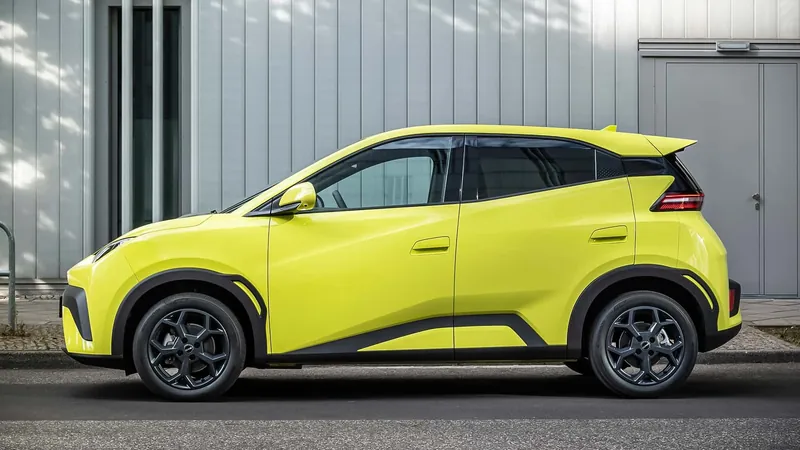
Canadian Farmers vs. Chinese EVs: The Tariff Tug-of-War
2025-09-11
Author: Liam
Canada's electric vehicle landscape is on the brink of a dramatic shift that could shake up the market and influence local farmers. Currently, a hefty 100% import tariff on Chinese electric vehicles (EVs) has kept budget-friendly options at bay. However, recent developments hint that this might soon change.
As tensions simmered, China retaliated against Canadian agricultural exports with its own set of tariffs, impacting Canadian farmers significantly. Now, the clash between trade policies and agricultural interests is prompting the Canadian government to reconsider its stance on tariffs.
Reports from CTV News indicate that Canada is contemplating the possibility of lowering or entirely abolishing its EV tariffs, first imposed last October. This shift could not only alleviate pressure on Canadian farmers but also potentially unleash an influx of affordable and often superior Chinese EVs into the Canadian market.
Agriculture Minister Heath MacDonald stated, "The prime minister did say there is an EV review. We will see where that leads... the discussions are ongoing." This reflects a commitment to reevaluate the tariff situation, underscoring the government’s intent to support local farmers while navigating the complexities of international trade.
The stakes are high for Canadian agriculture; the country exported a staggering $5 billion worth of canola oil and associated products to China in just 2024. With canola, peas, and other key exports subject to Chinese tariffs, eliminating Canadian tariffs on Chinese EVs could help farmers gain access to one of the globe's largest markets, alleviating some of the financial strain they're facing.
A Troubled EV Market in Canada
Canada's own EV market is experiencing a downturn, with statistics revealing a disastrous 39.2% drop in EV sales year-over-year, despite an overall increase in new vehicle registrations. In the second quarter of 2025, EVs made up only 8.6% of new car sales, a steep decline from the previous year's 18.3%.
The problem lies not only with tariffs but also with the reduction of financial incentives for buyers. Quebec considered suspending its EV incentives program—which had offered up to $4,000 CAD for new purchases—earlier this year. Although public backlash forced lawmakers to reconsider, the provincial incentives will be halved in 2026 and entirely phased out by 2027. Meanwhile, British Columbia's rebate program came to a halt in May, leaving buyers to rely on a federal incentive of $5,000 CAD, applicable to EVs with a base price under $55,000 CAD.
As Canada weighs the implications of its tariff policies, the future of both its farmers and the EV market hangs in the balance, raising questions about the potential benefits of integration with New Energy Vehicle giants from China.









 Brasil (PT)
Brasil (PT)
 Canada (EN)
Canada (EN)
 Chile (ES)
Chile (ES)
 Česko (CS)
Česko (CS)
 대한민국 (KO)
대한민국 (KO)
 España (ES)
España (ES)
 France (FR)
France (FR)
 Hong Kong (EN)
Hong Kong (EN)
 Italia (IT)
Italia (IT)
 日本 (JA)
日本 (JA)
 Magyarország (HU)
Magyarország (HU)
 Norge (NO)
Norge (NO)
 Polska (PL)
Polska (PL)
 Schweiz (DE)
Schweiz (DE)
 Singapore (EN)
Singapore (EN)
 Sverige (SV)
Sverige (SV)
 Suomi (FI)
Suomi (FI)
 Türkiye (TR)
Türkiye (TR)
 الإمارات العربية المتحدة (AR)
الإمارات العربية المتحدة (AR)